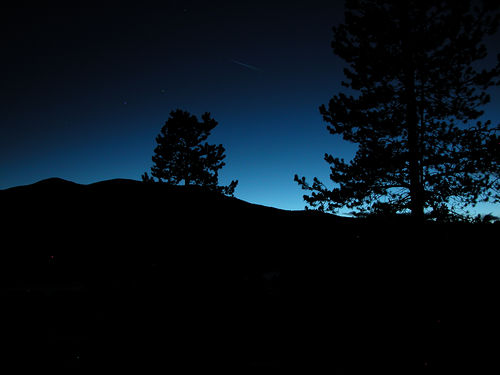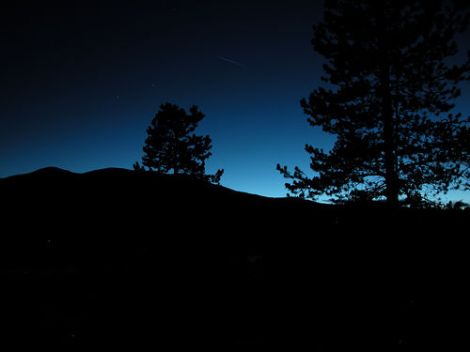Eight lucky people out in Colorado got to be part of the best scientific study ever. It involved, basically, going camping and sleeping. And that was about it.
And, at the end of it, they were all sleeping better.
The key, Smithsonian reports, was that they had no artificial light sources:
Eight people spent a week camping in the Colorado Rockies without any source of artificial light. To a person, the time spent outdoors during day and night restored a natural sleep cycle, turning even night owls into early risers.
You’ve probably experienced this on day two or three of a camping trip: You fall asleep at 10 and wake up at 6 a.m., thinking “jeez, how is it possible that I’m up this early?” Imagine how good it would feel if your day started that way, AND you didn’t then have to go pee in the woods!
When the research team looked at the data, they found that all eight participants steadily shifted towards a sleep schedule that more closely mirrored the setting and rising of the Sun. Those who’d been night owls before the camping period — staying up later and waking later — saw the most dramatic shifts in their sleep cycles. As a whole, the campers slept for roughly the same amount of time each night as before, but fell asleep two hours earlier and awoke — without alarm clocks — two hours earlier as well.
It sounds really peaceful. Can we get those scientists to work on a way of avoiding artificial light while still having access to the internet?




